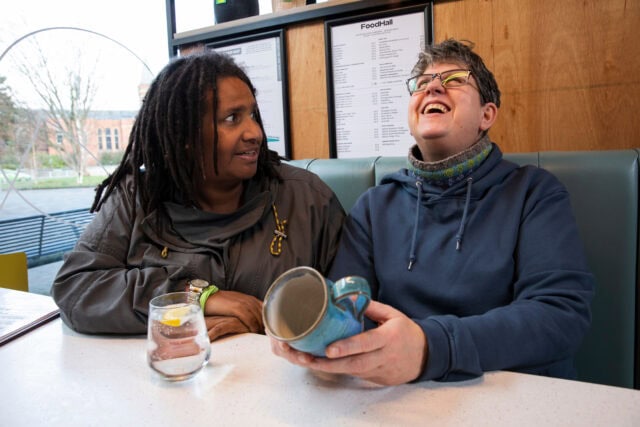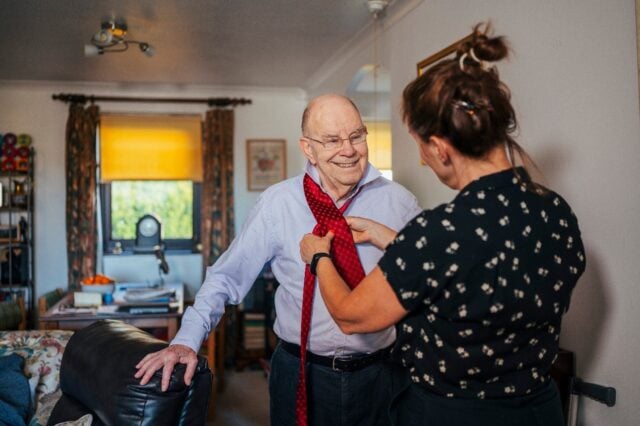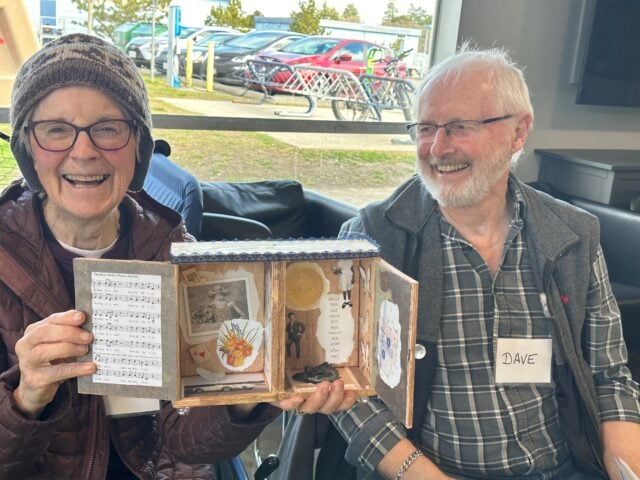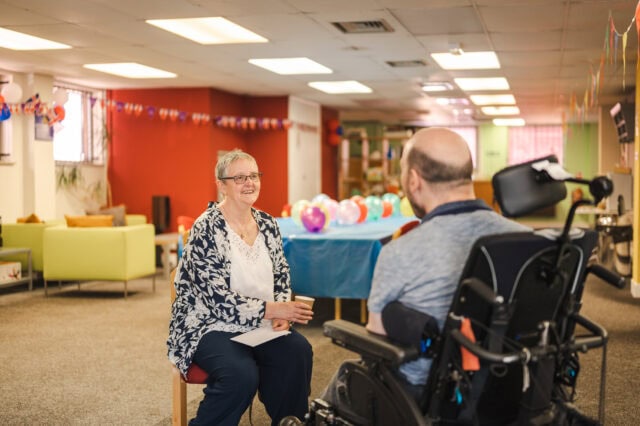By Dr. Adriana Shnall
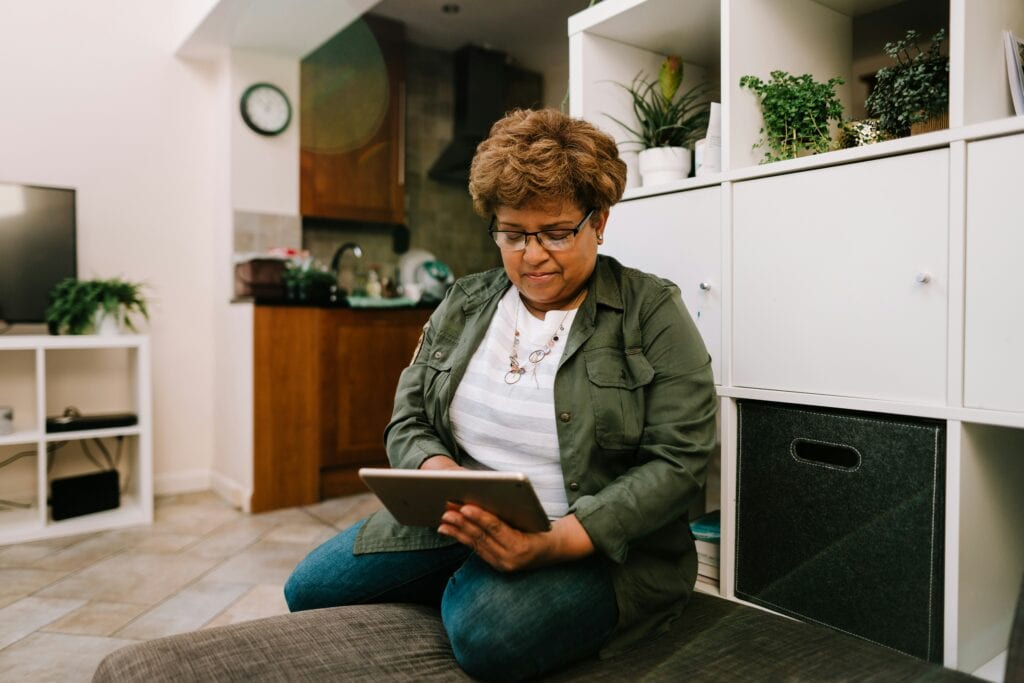
My name is Dr. Adriana Shnall and I lead the Koschitzky Centre for Innovations in Caregiving at Baycrest. I work with caregivers and families to plan and trial approaches to support people who are experiencing behaviours in dementia.
Most people living with dementia have some awareness of changes in their mood or behaviours, but it’s most often caregivers and families who realize the full extent of the impacts of dementia. The anxiety, depression and anger that often accompany dementia can create a very difficult situation for families, as they are the ones who then have to deal with these emotions. It’s like a series of roller coaster rides. Families become responsible to not only manage their own sadness and emotions around dementia, but also to be a kind of constant emotional barometer for the person living with dementia.
There are so many variables to consider when recommending resources to support caregivers and families of people living with dementia. Like, when did the dementia begin – at what stage of life? If it starts in your 50s you are likely still working, which is very different than if you’re 85. Sometimes families are providing support for more than 20 years, which can be very difficult.
Other variables include financial resources and the type of relationships that existed before the dementia – were they healthy and loving or strained? Differences within cultures is another variable, some cultures don’t even have a word for dementia. Access to transportation and where you live – especially rural vs urban settings – are two variables that can make a big difference in terms of the available supports for families.
We know that 94% of Canadians supporting a person with dementia report that help in the home is the number one thing that would make a big difference. Yet all of the variables I’ve mentioned, along with lack of coordination within our health care systems, make actually getting help in the home really challenging for families.
Over the years, I’ve noticed that the psychosocial interventions I’ve provided for the families of people living with dementia have been, by far, the most effective type of support I can offer them. While everything the interdisciplinary team members provide for families is ultimately helpful, the psychosocial interventions can provide immediate relief of behaviours in dementia. In addition, I’ve noticed that caregivers and families really benefit from practical tips that help them manage their thoughts and emotions.
Here are some online resources that I often recommend to support caregivers and families who are in the midst of a caregiving journey.
Caregiving portal
https://www.baycrest.org/Baycrest/Health-Wellness/Health-Wellness-Information/Caregiving
This is a portal for family caregivers that includes webinars, caregiving online learning modules and other supports and services geared to family caregivers of people living with dementia.
Caregiver Webinar Series
https://baycrestathome.ca/articles-and-webinars/
A series of over 40 family caregiver webinars dedicated to various topics related to those caring for people with dementia. The webinars varies from areas such as Advance Care Planning, to Self-Care, to the benefits of support groups, how to utilize technology, to supporting caregivers of the 2SLGBTQ + community, to reducing one own’s risk of developing dementia.
Behavioural Support for Seniors Program
The Behavioural Support for Seniors Program (BSSP) enhances quality of care and life for people struggling with, and demonstrating, responsive behaviours as a result of a primary diagnosis of major neurocognitive disorder (dementia), presenting with a neurodegenerative process, and can be concurrent with mental health conditions or disorders, other neurological conditions and brain injuries.
This program is for seniors, their families and caregivers, who are living at home, living in long-term care homes, or in a Hospital or Transition Unit.
Caregiver support e-learning modules:
Module 1 – This module will help you to understand the difficult work of caregivers and it describes factors that can influence the experience. https://general.baycrest.org/caregiver-mod1/story.html
Module 2 – This module will help you have a supportive conversation with a caregiver. https://general.baycrest.org/caregiver-mod2/story.html
Module 3 – This module will share some tips on how caregivers can ask for and get the support they need. https://general.baycrest.org/caregiver-mod3/story.html
_ _ _

This blog was contributed by Dr. Adriana Shnall, PhD, MSW, RSW. Dr. Shnall is the Program Director, Baycrest@Home, Clinical Programs & Koschitzky Centre for Innovations in Family Caregiving and an Assistant Professor, University of Toronto.
Would you like to curate a resource list for the Behaviours in Dementia Toolkit? Reach out to CCSMH knowledge broker Nick Ubels at [email protected]

